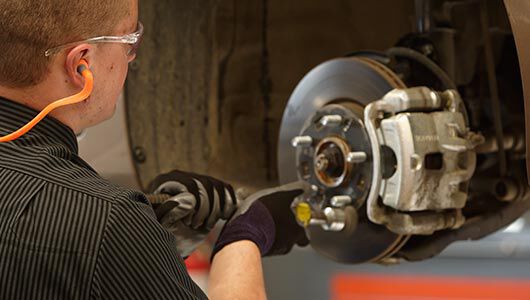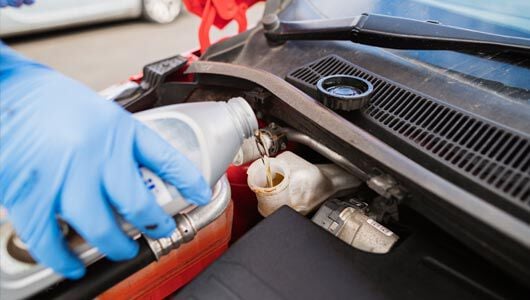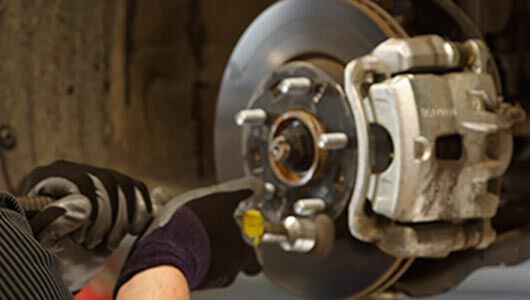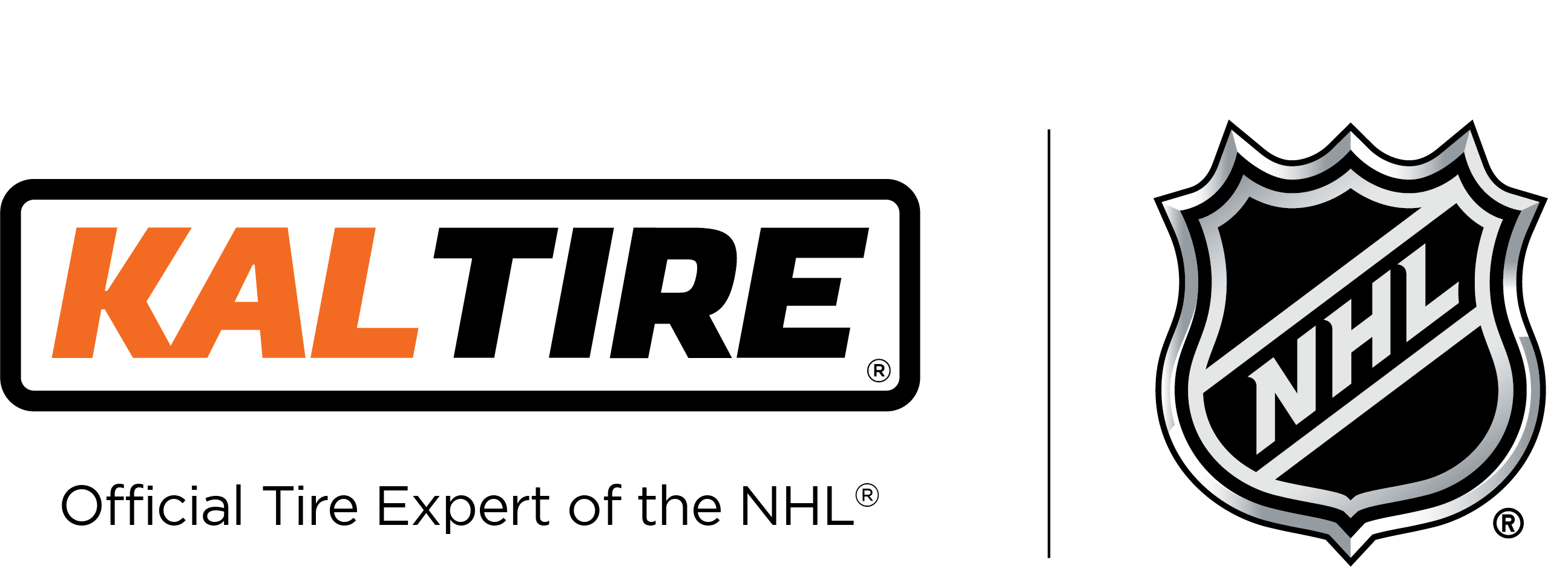When do you change your brakes?
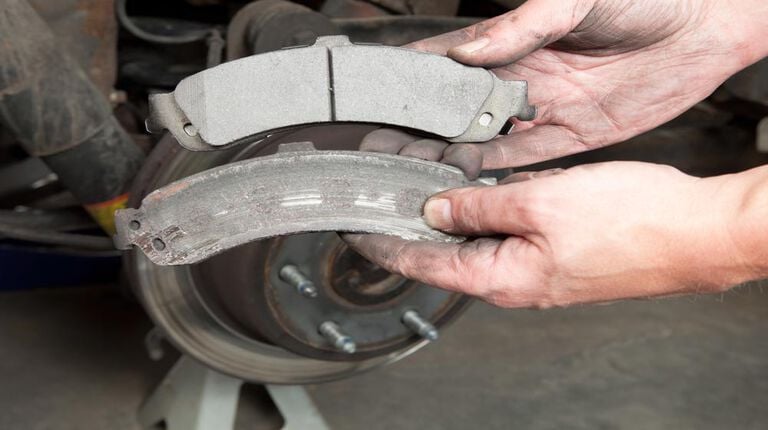
Article last updated on April 14, 2021
Brake problems are the vehicle nightmare many drivers hope they’ll never have to face. Because your brakes play such an integral role in vehicle handling, when your brakes begin to fail, they’ll give clues they’re worn or at risk of failing—but do you know the signs?
A national Kal Tire survey found that while 62 per cent of motorists recognized one obvious warning—the sounds of worn or failing brakes—more serious signs of brake failure were less likely to be identified by drivers.
Here are all the signs you may be having brake problems that could point to both minor repairs and significant safety concerns:
1. Your brakes are squealing or grinding
That screeching, grinding sound of metal on metal is what comes to mind when most drivers think of failing brakes. If you do hear that metal-to-metal brakes squealing noise, it likely means your brakes are completely worn.
Regular vehicle maintenance and inspections can help detect worn brake pads so they can be replaced. Brake pads are designed to wear over time and need to be replaced every so often. Most automotive brake systems incorporate wear sensors to provide an audible warning (squealing) when the brake pads are worn out.
Note that it is possible for your brakes to fail and not make those ear-scratching sounds.
2. Your brake pedal has fallen
One of the sure-fire signs your brakes are failing is a falling brake pedal. On any given day when your brakes are in good condition, your brake pedal will sit at the same height. Because you’re used to that height, you’ll notice when your brake pedal falls to the floor.
A falling brake pedal means your brakes are out of adjustment, and it could be a sign there’s air in your system or a mechanical failure.
3. You have to hit the brakes harder
If any one brake or axle is not performing the way it’s supposed to, you’ll have to push harder on your pedal to stop your vehicle. Some people describe it as a ‘soft brake pedal.’
The Kal Tire brake safety awareness study found few drivers were able to name these more serious warning signs of brake failure: brakes taking longer to stop (only 33 per cent), a low or fallen brake pedal (13 per cent).
4. Your brake pedal is vibrating or pulsating when brakes are applied
Why are you noticing a vibrating brake pedal when you apply the brakes? Sometimes when brakes aren’t working properly, you might notice vibrations or shudders. This is usually indicative of worn and/or corrosion compromised brake rotors or drums and is common after periods of inactivity.
If the issue is caused by your ABS, you’ll notice a mechanical pulsation. If it’s because of warped brake rotors, you’ll feel a wobble through the steering wheel when you apply the brakes.
5. You feel a pull to the left or right
If you’re applying the brakes and you notice a pull to the left or right, it could mean one of the vehicle’s calipers or wheel cylinders are seized. That can cause the other side to do all the work, and the tire that’s braking harder will pull to that side.
6. Hydraulic failure/ warning light illuminated on instrumental panel
Usually, if your vehicle has a hydraulic failure, you’ll see its red dashboard symbol—an image of brakes or the word ‘brakes.’ Hydraulic failures usually will be accompanied by low brake pedal.
Some of the more common causes of a brake warning light illuminating include:
- worn brake pads
- burst brake line
- slightly low brake fluid level
- parking/emergency brake that has a broken cable or won’t fully release
What should you do if you think your brakes are failing?
If you’re noticing just a slight vibration on your brake pedal when you apply the brakes, bring your vehicle to a Kal Tire store near you as soon as you can. In the meantime, if you happen to notice your brake fluid is low, only use an approved brake fluid in the master cylinder.
If your pedal goes to the floor instantly or it’s taking enormous effort to brake, it’s not safe to be driving your vehicle. Safely pull over to an area with ample room and have your vehicle towed to a Kal Tire store near you for brake service. From brake pads and shoes to ABS sensors and calipers, we offer full brake service to get you safely back on the road.
An annual brake check and proactive maintenance can help extend the life of your brake parts and help keep your brakes working safely for the benefit of everyone.
Are you having brake problems? Talk to Kal! Our trained technicians perform brake inspections and expert brake service, and we can get you a straight forward quote today. All of our services are warranty-approved and done with replacement parts that meet or exceed factory replacements. Plus, Kal Tire now offers easy online appointment bookings for free brake inspections. Learn more about our brake services and find a store near you.


